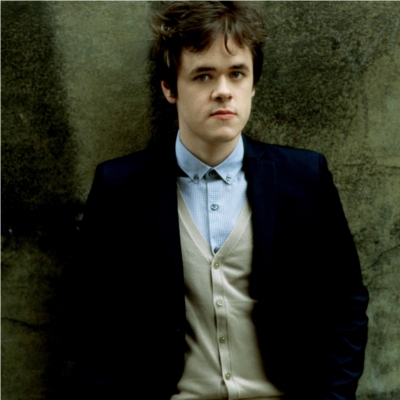Pianist Grosvenor displays introspective virtuosity in Boston debut

Benjamin Grosvenor made his Boston recital Tuesday night at Pickman Hall, presented by the Celebrity Series. Photo: Sussie Ahlburg
As Benjamin Grosvenor played Mendelssohn’s Andante and Rondo capriccioso, Op. 14, to begin his Boston debut recital Tuesday night, one could be forgiven for thinking the young British pianist a dull fellow indeed. The work’s warm opening melody seemed to lie lifeless on the keys, and Grosvenor’s efficient performance of the famously fizzy rondo had all the charm of watching a computer whiz write code.
With the pianist’s casual attire—a slightly rumpled shirt and black pants—contributing to the nerdy first impression, things did not look promising at first for the recital, presented by Celebrity Series of Boston in the Longy School’s intimate Pickman Hall. But in the course of a ramble through works by Schubert, Schumann, Mompou, Ravel and Liszt with a thread of fantasy and reverie running throughout, the pianist seemed to relax a bit, and gradually one came to appreciate Benjamin Grosvenor as an artist who marches to the beat of a different dreamer.
That appreciation did not come easily. In Grosvenor’s introverted interpretation, the tenderness and passion of Schubert’s rippling Impromptu in G-flat major, Op. 90, No. 3, became the best-kept secret in Boston. And after that, even the appeal of the familiar went away, as the pianist ventured into rarely played works.
“Extreme Schumann” is the word for the Humoreske, Op. 20, in which that composer’s quirkiness and musical ADHD, so charming in earlier piano cycles such as Papillons and Carnaval, produced music that even today sounds experimental, bizarre, verging on incomprehensible. It is a brave pianist who chooses the Humoreske over its more listener-friendly siblings.
At least Grosvenor’s manic, brittle fortes and vague pianos suited this music better than they did the Mendelssohn. And as the performance went on, another side to his playing began to peek out—one with genuinely singing melodies, multilayered voicing, and rich tone in the bass. If the pianist didn’t solve the riddle of where Schumann was going in this piece, he produced considerable excitement and lyricism along the way.
It is tempting to say that Grosvenor returned after intermission a different pianist, but what really happened was that the introspective artist seemed to find his soulmate in Frederic Mompou. The three impressionistic sketches of the Catalan composer’s Paisajes (Landscapes) glowed gently in Grosvenor’s exquisitely detailed yet unfussy rendering.
Two Skazki (Fairy Tales) by Nikolai Medtner provided a more athletic brand of fantasy. A simple folk tune framed fast and furious goings-on in the A minor, Op. 51, No. 3, while rat-a-tat staccato à la Rachmaninoff propelled the E minor, Op. 14, No. 2 (“March of the Paladin”). Grosvenor handled this volatile material with imagination, although his brittle tone in forte suited the second piece better than the first.
The swirl of dances in Ravel’s Valses nobles et sentimentales can evoke other musical ballroom scenes such as Schumann’s Carneval, but in Grosvenor’s hazy, introspective playing, the ballroom seemed more an elusive dream than a glittering reality. De-emphasizing the piano’s bass register made the music sound untethered, even disembodied at times, and, in an effective final touch to an unusual interpretation, the music seemed simply to evaporate at the end.
A very different kind of waltz medley, Liszt’s extravagant Valse de l’opéra Faust can be played simply as a hoot from start to finish, or as a (sort of) serious attempt to evoke moods and scenes from Gounod’s opera. Grosvenor’s geeky earnestness got in the way of the former, and his emotional reserve didn’t invite the latter, but this “wow” closer—a surprisingly conventional choice for this program—had enough keyboard pyrotechnics and pizzazz to bring a third of the audience to its feet at the end.
For encores, Grosvenor found a touch of Chopin-mazurka poetry in Leopold Godowsky’s arrangement of the familiar Tango by Albéniz, then cheerfully banged out the Bartókian riffs of Morton Gould’s Boogie-Woogie Etude.
The Celebrity Series of Boston presents the Danish String Quartet, 8 p.m. Nov. 13 at Pickman Hall, Longy School of Music. celebrityseries.org; 617-482-6661.
Posted in Performances